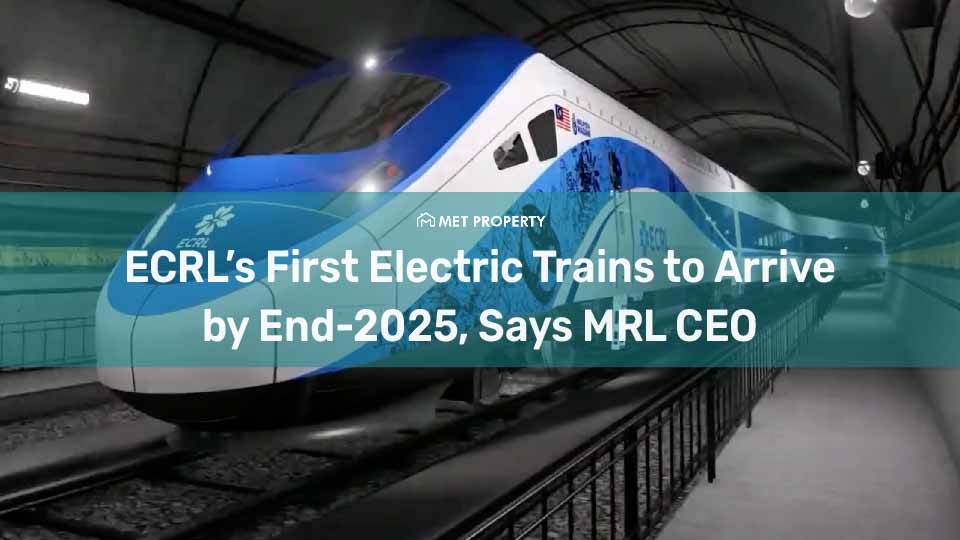“Malaysia’s ECRL project to receive first electric trains by end-2025, with testing to begin in mid-2026 and 109 students sent to China for skills training.”
Kuala Terengganu, 16th July 2025, 01.26pm – The East Coast Rail Link (ECRL) project will receive its first batch of electric trains by the end of this year, according to Malaysia Rail Link Sdn Bhd (MRL). The delivery will include two sets of Electric Multiple Unit (EMU) trains and two electric locomotives (E-Locos) to support upcoming testing phases.
MRL chief executive officer Datuk Seri Darwis Abdul Razak said the initial delivery is part of preparations for commissioning tests for both passenger and freight services, scheduled to begin in June 2026.
“The next delivery phase will see another nine EMU sets and 18 electric locomotives arriving in stages between April and May 2026. In total, 11 EMU trains will be allocated for passenger operations and 20 electric locomotives for freight services,” Darwis told reporters at the 2025 POLYCC TVET Mega Fiesta at Sultan Mizan Zainal Abidin Polytechnic (PSMZA).
Also present at the event were Department of Polytechnic and Community College Education senior director (Competency) Abdul Razak Sabtu, and PSMZA director Zamra Derahman.
109 Students to Undergo ECRL Industrial Training in China
Darwis also announced that 109 students from local institutions of higher learning will be sent to Liuzhou, China between August and October 2025 to undergo specialised industrial training under the ECRL Industrial Skills Training Programme (PLKI-ECRL).
“All trainees are guaranteed employment under the ECRL project upon completing the training, with a starting salary of RM3,000,” he said.
In May, 101 students from institutions including polytechnics and MARA colleges were selected for the same programme, with 60 from PSMZA alone, reflecting strong institutional collaboration.
“The synergy between Technical and Vocational Education and Training (TVET) institutions and industry players like MRL is essential for building a skilled, resilient workforce ready to meet global standards,” Darwis added.
The ECRL, a key component of Malaysia’s national infrastructure agenda, is expected to improve connectivity between the East Coast and the Klang Valley, reduce freight costs, and spur regional development.




